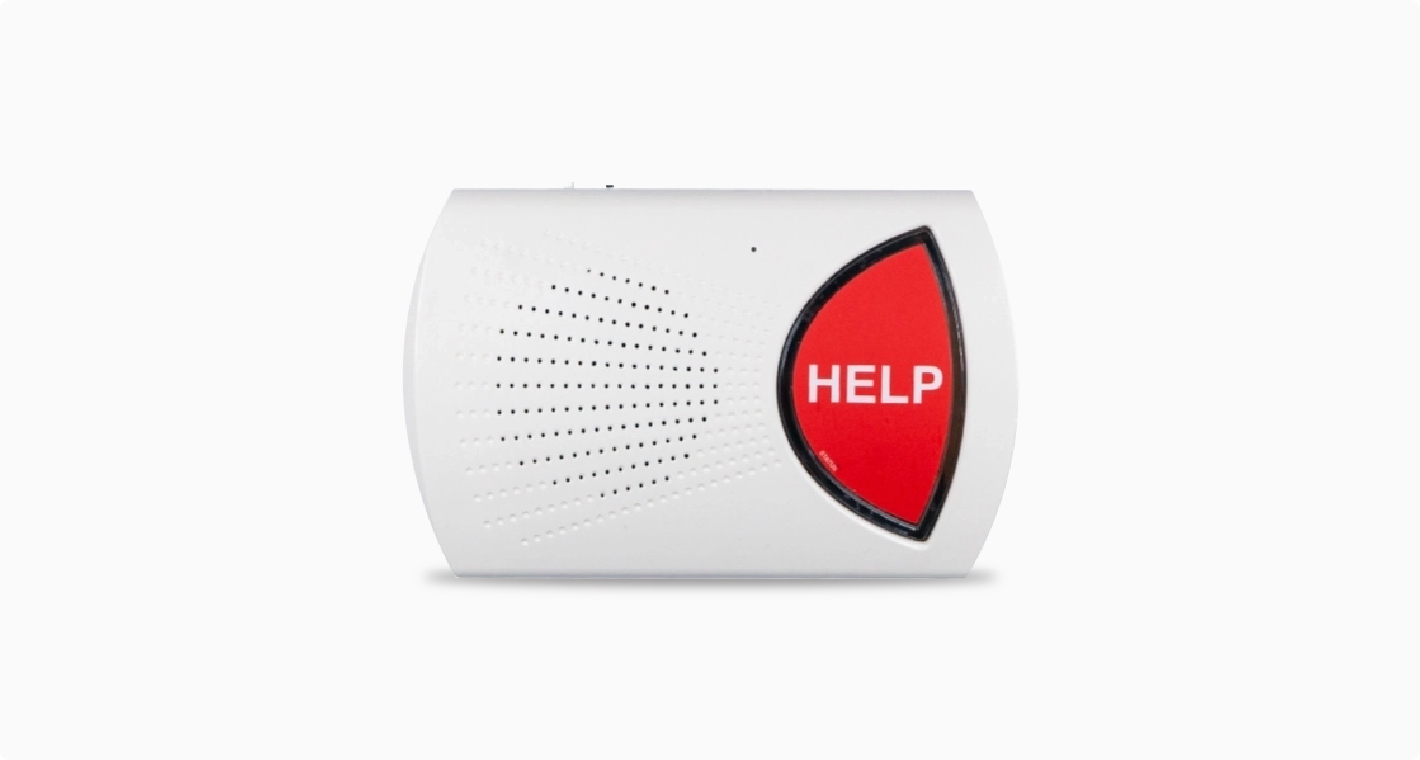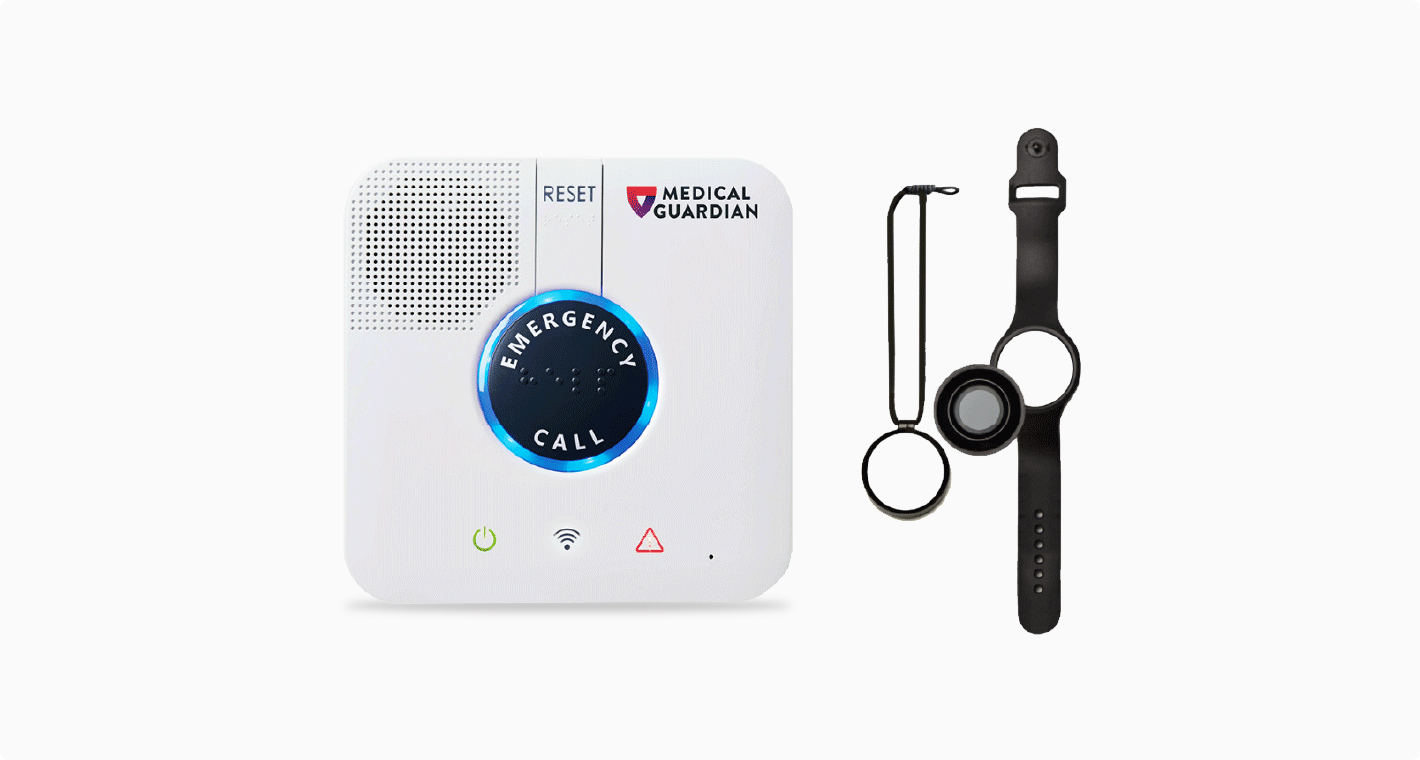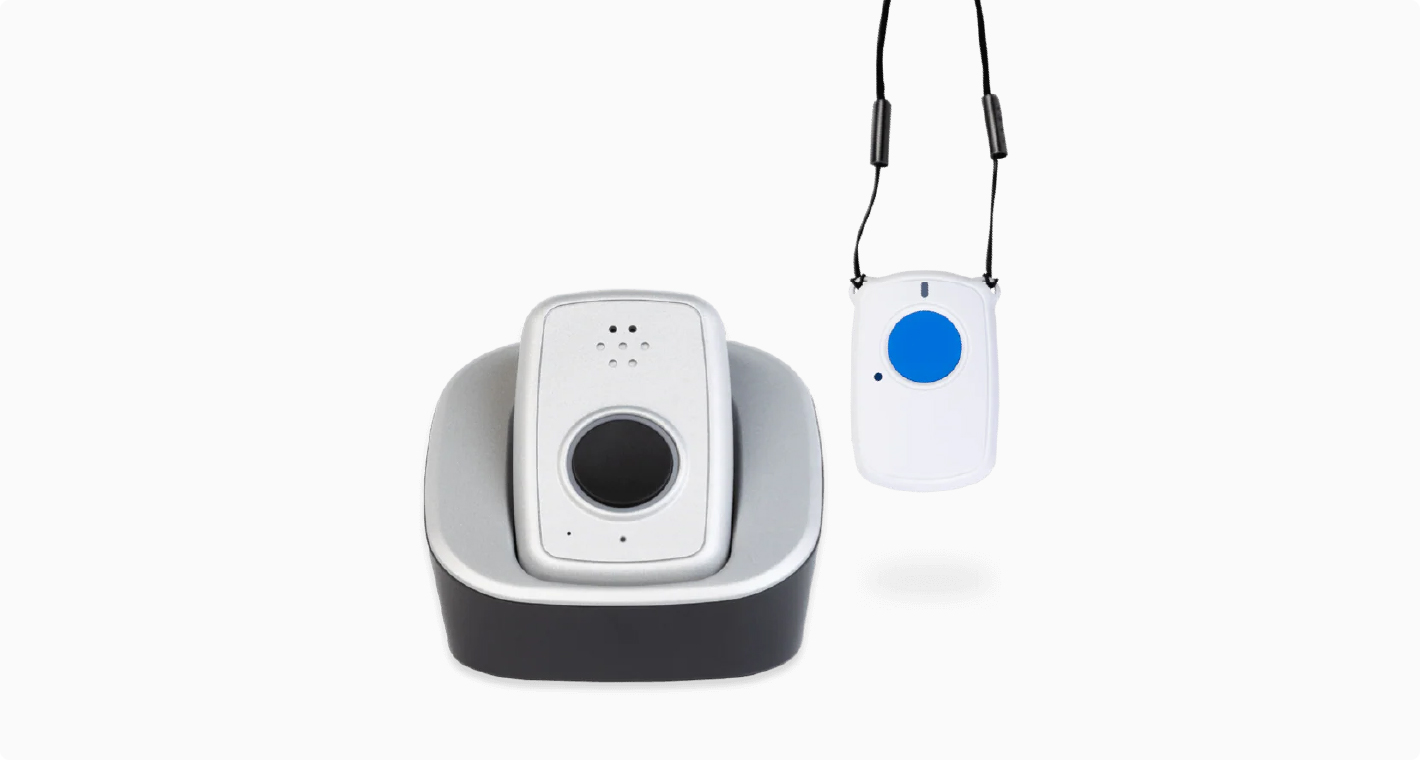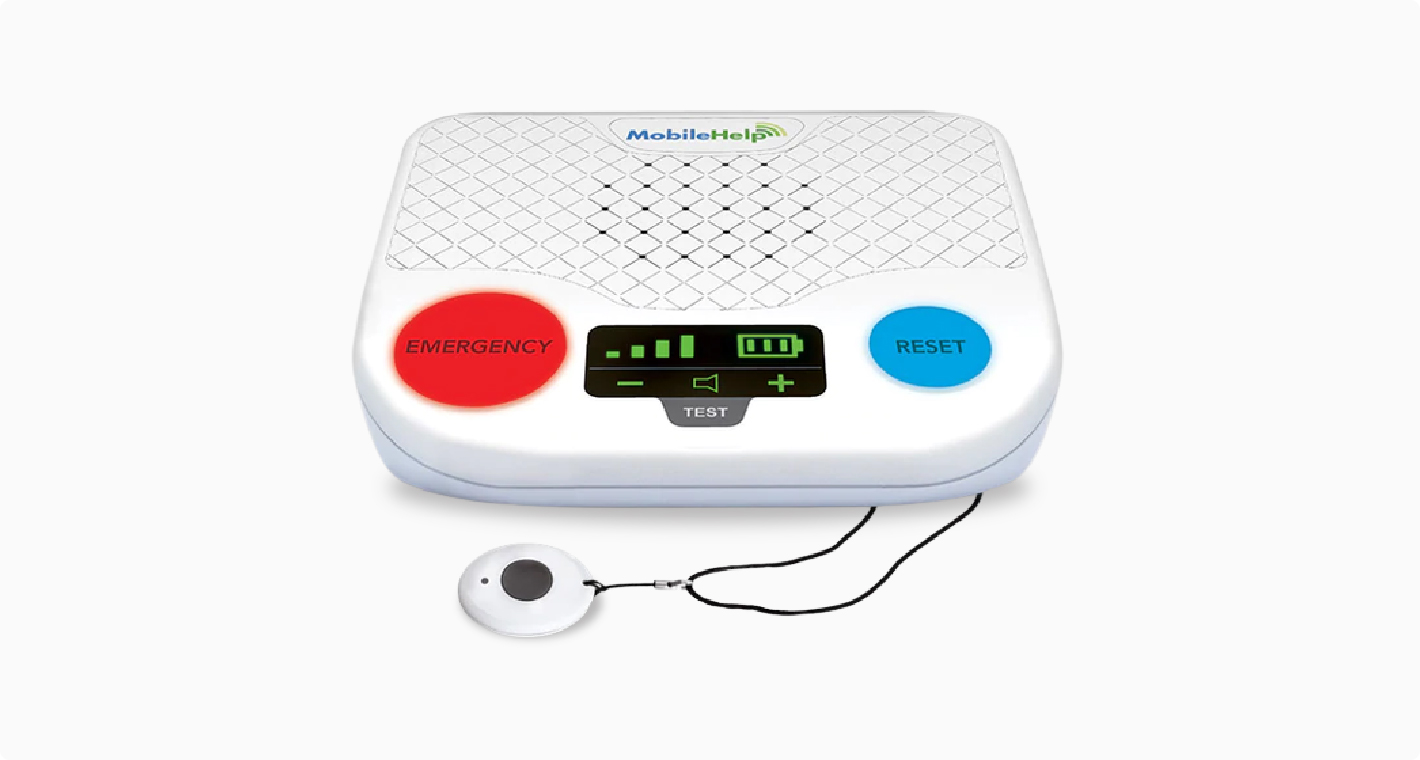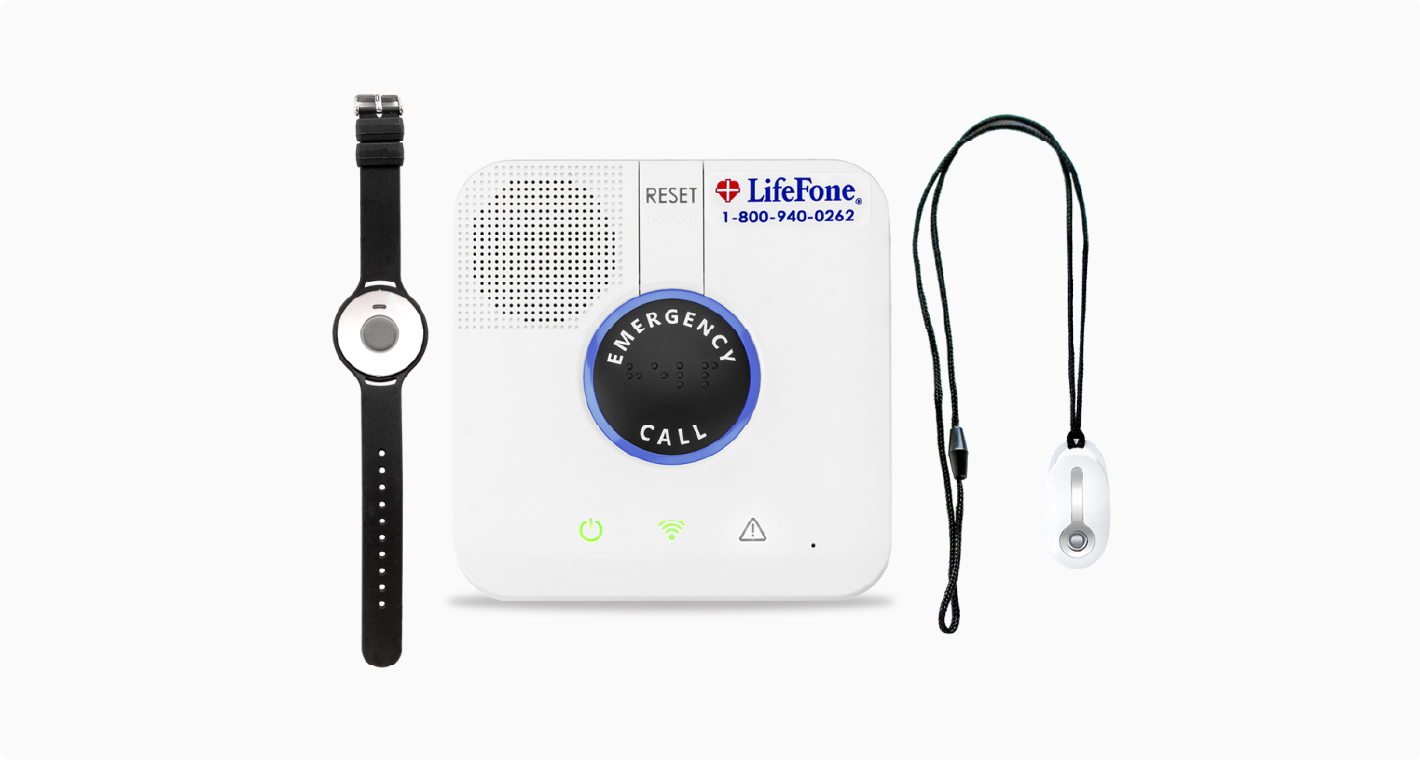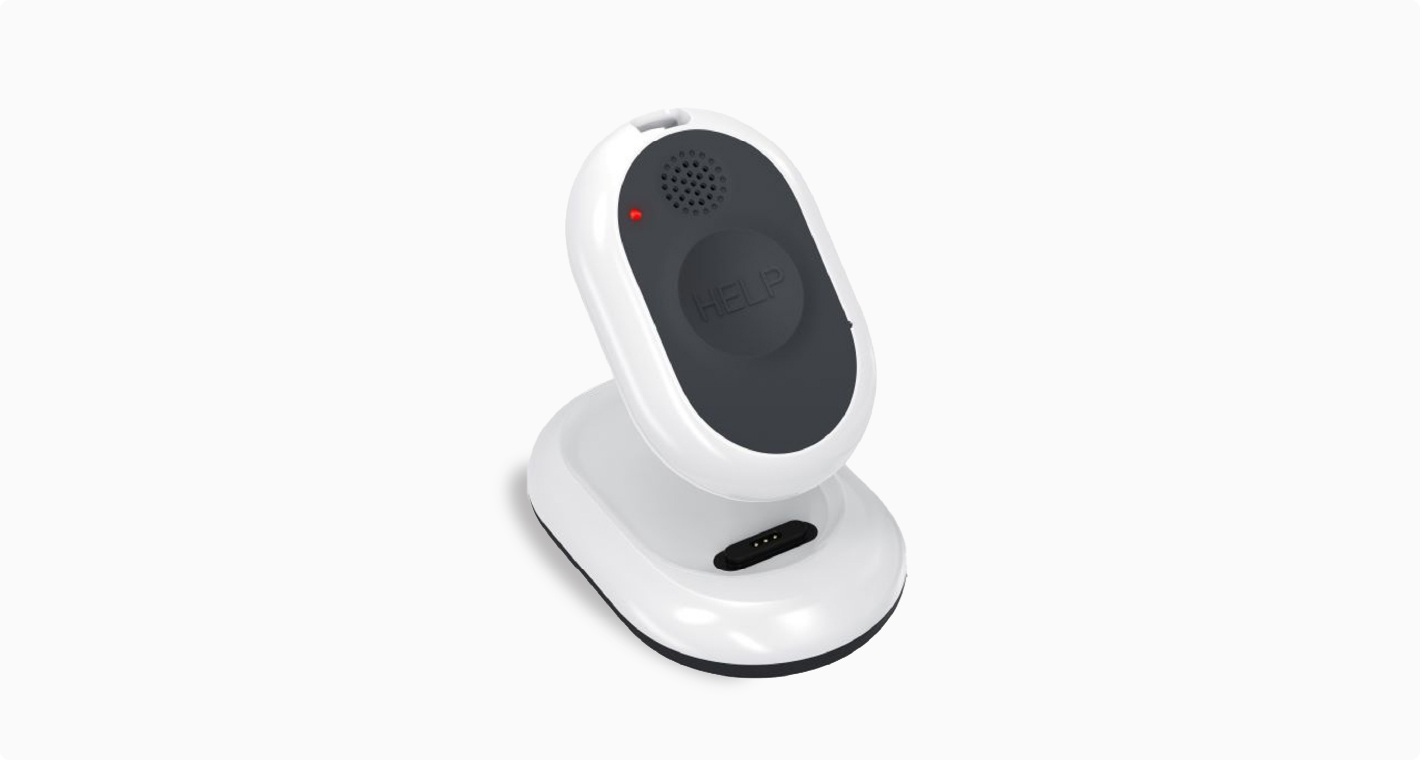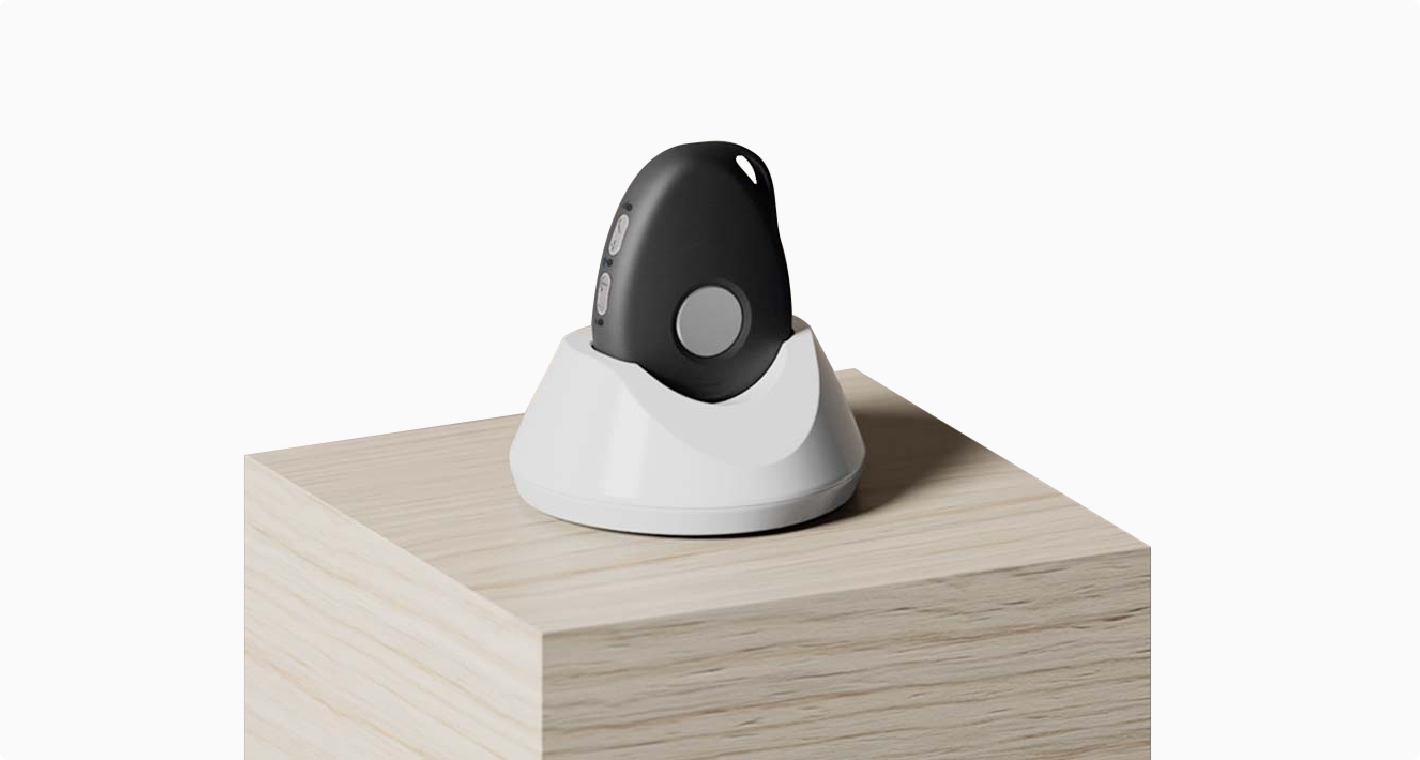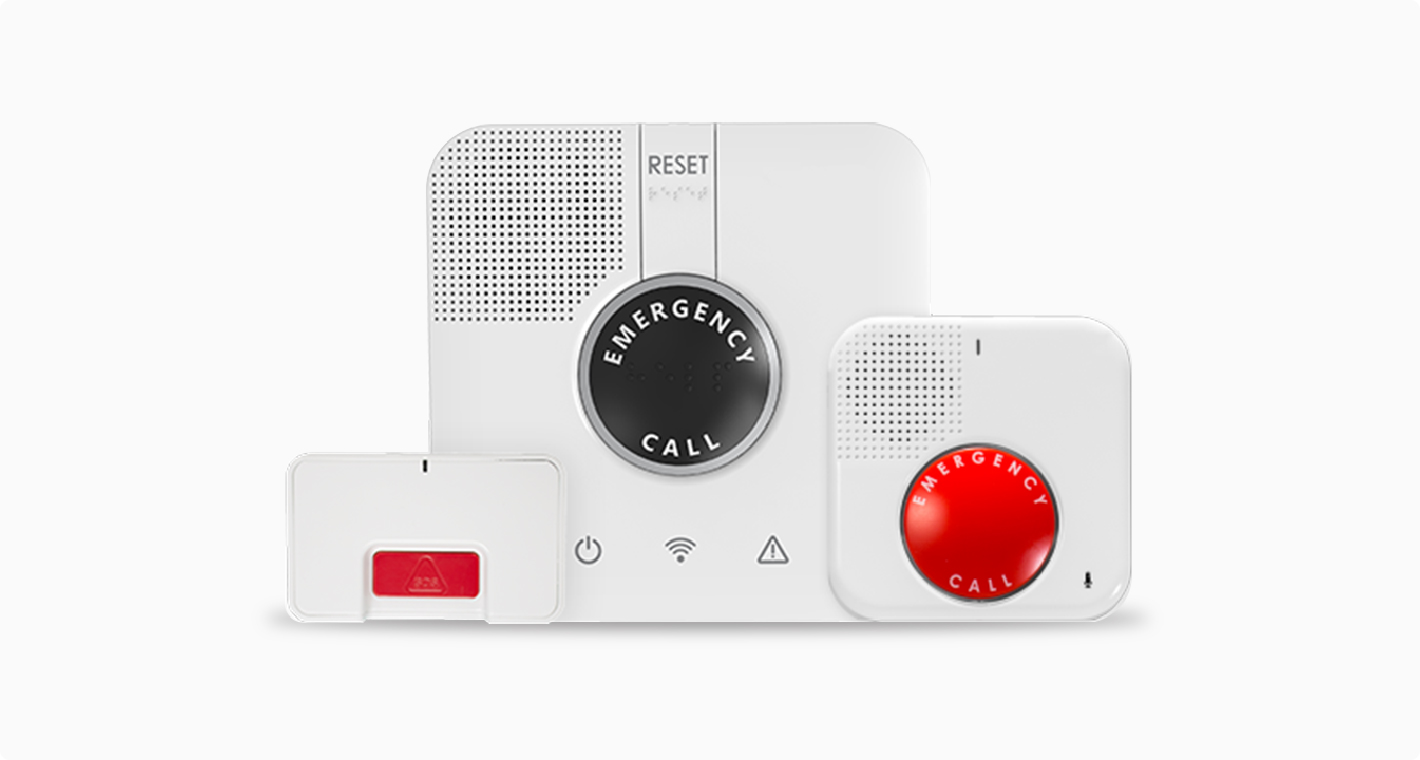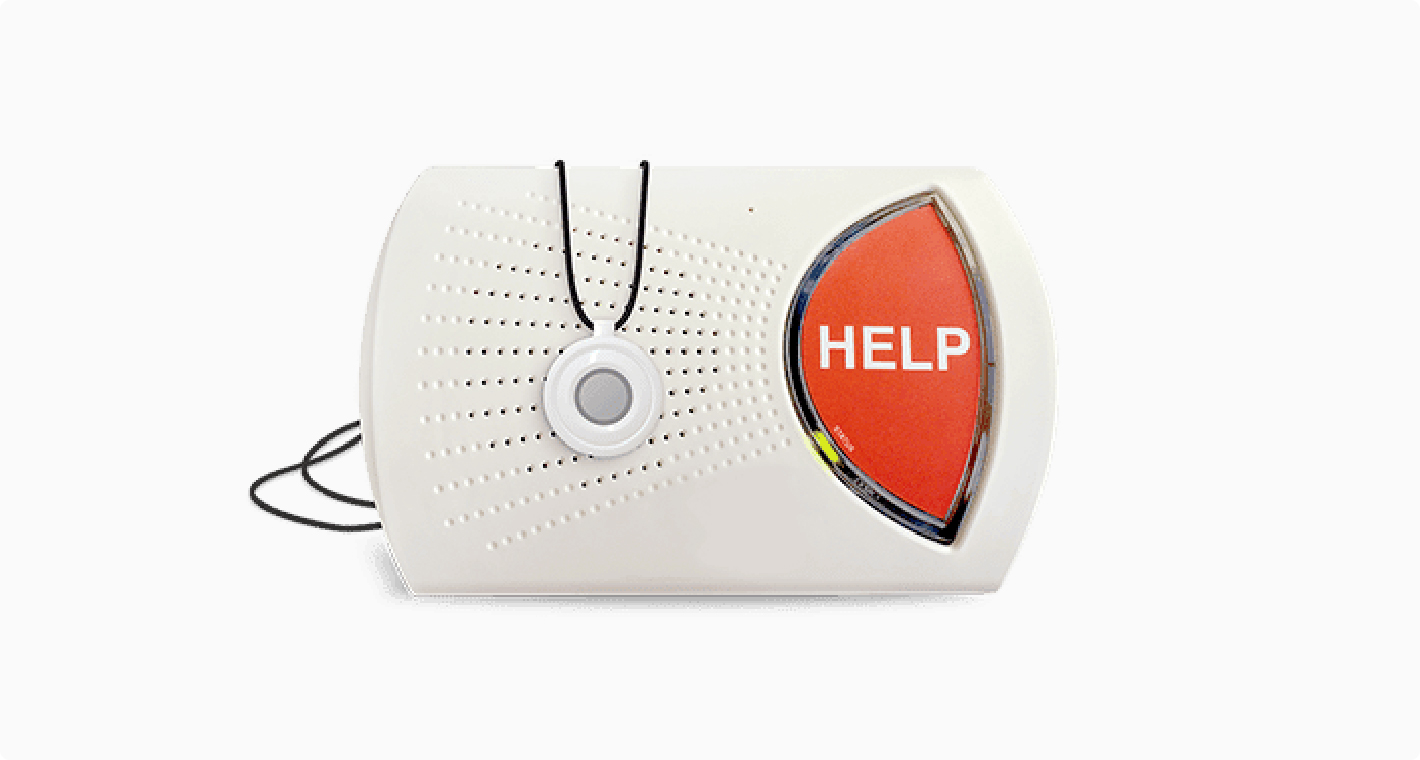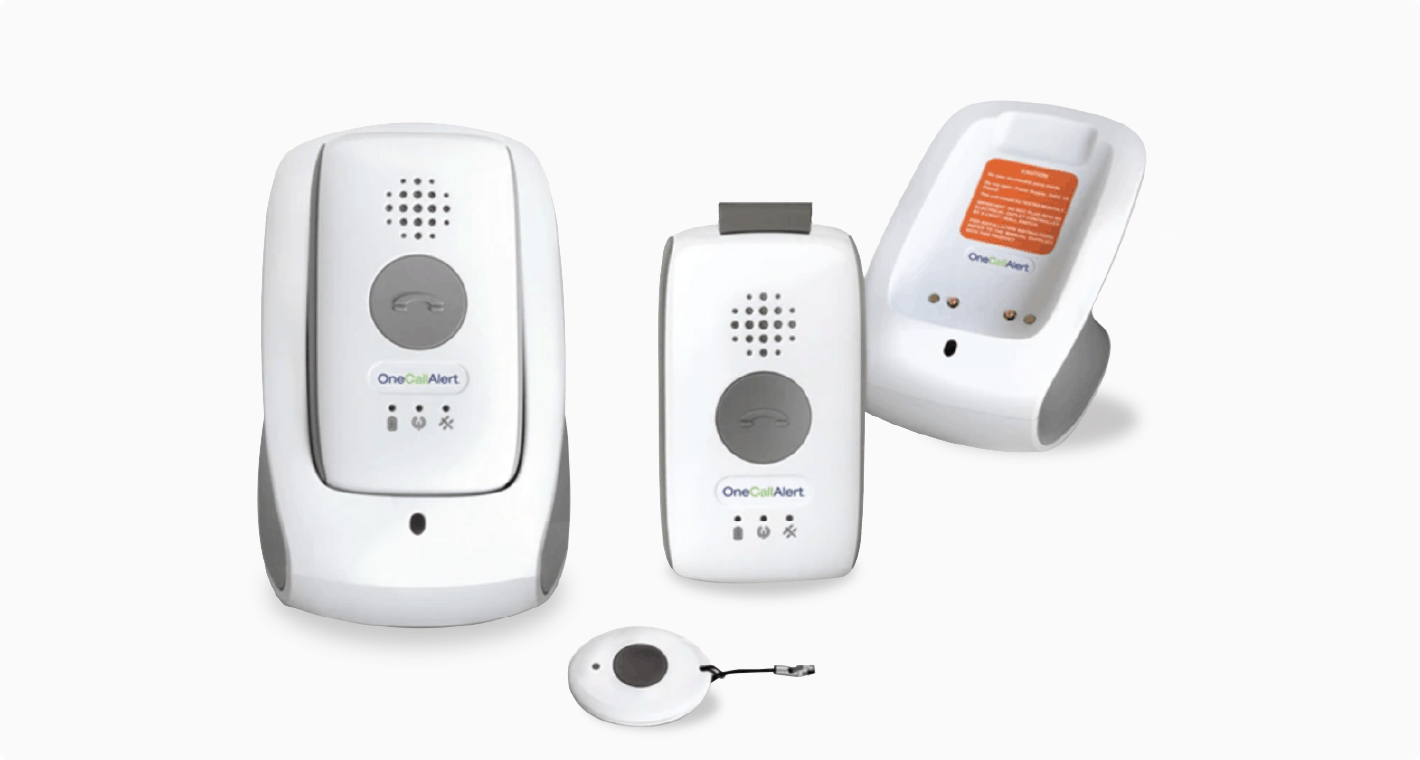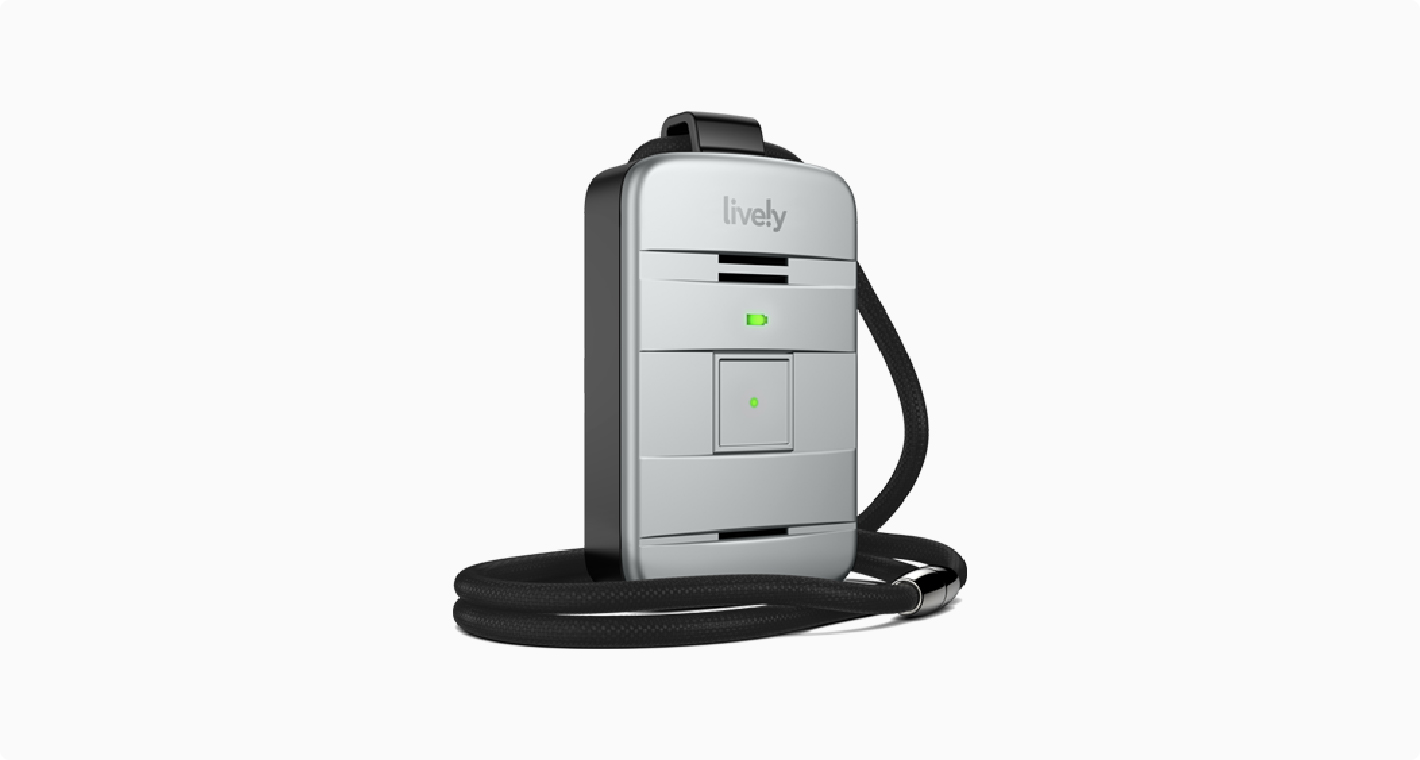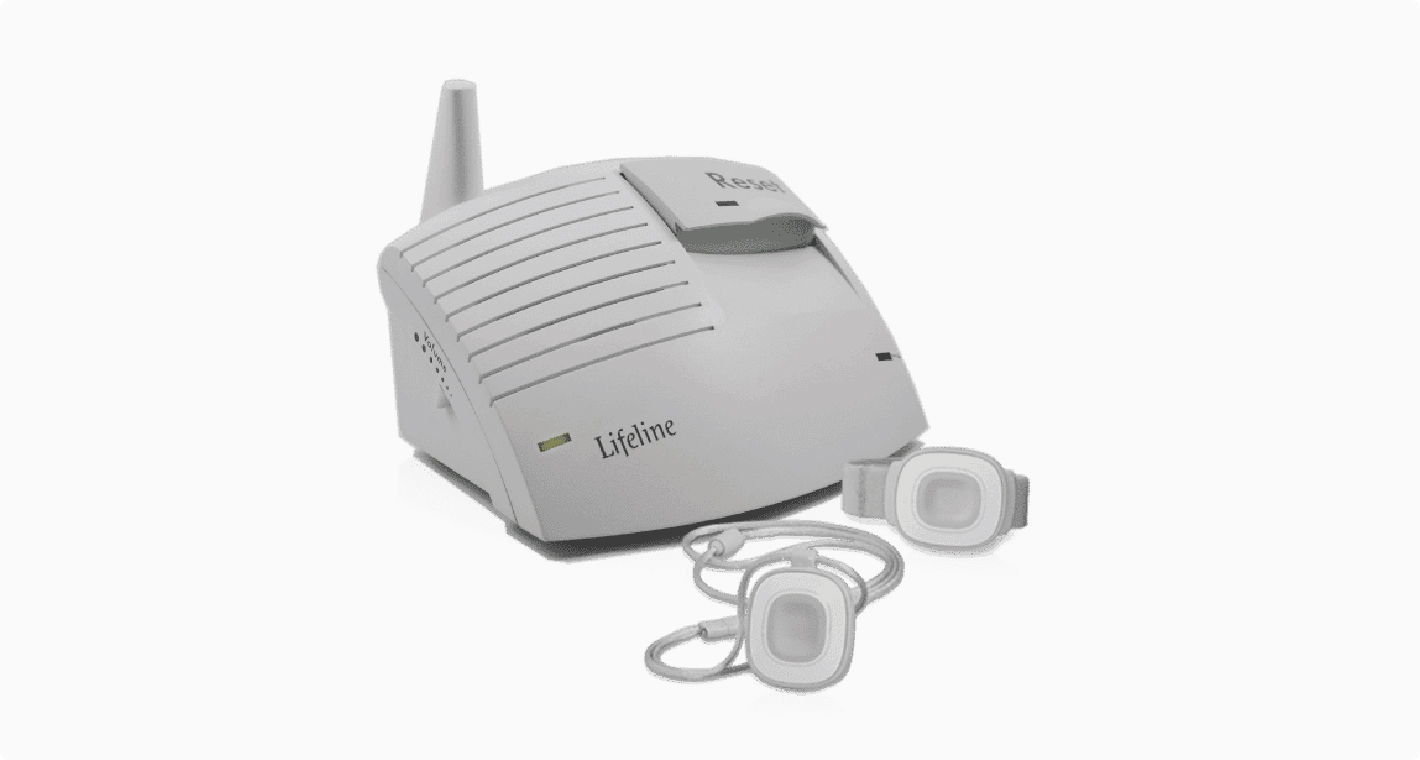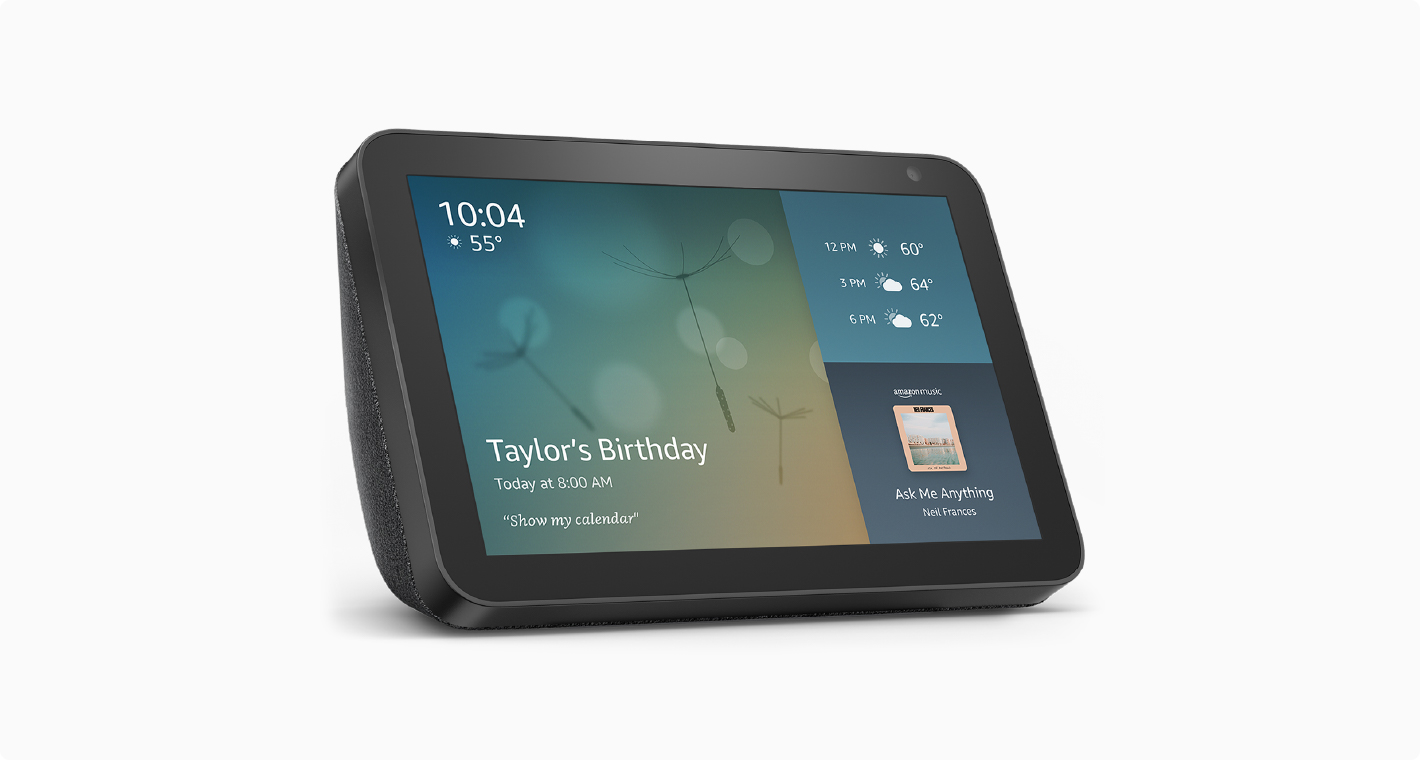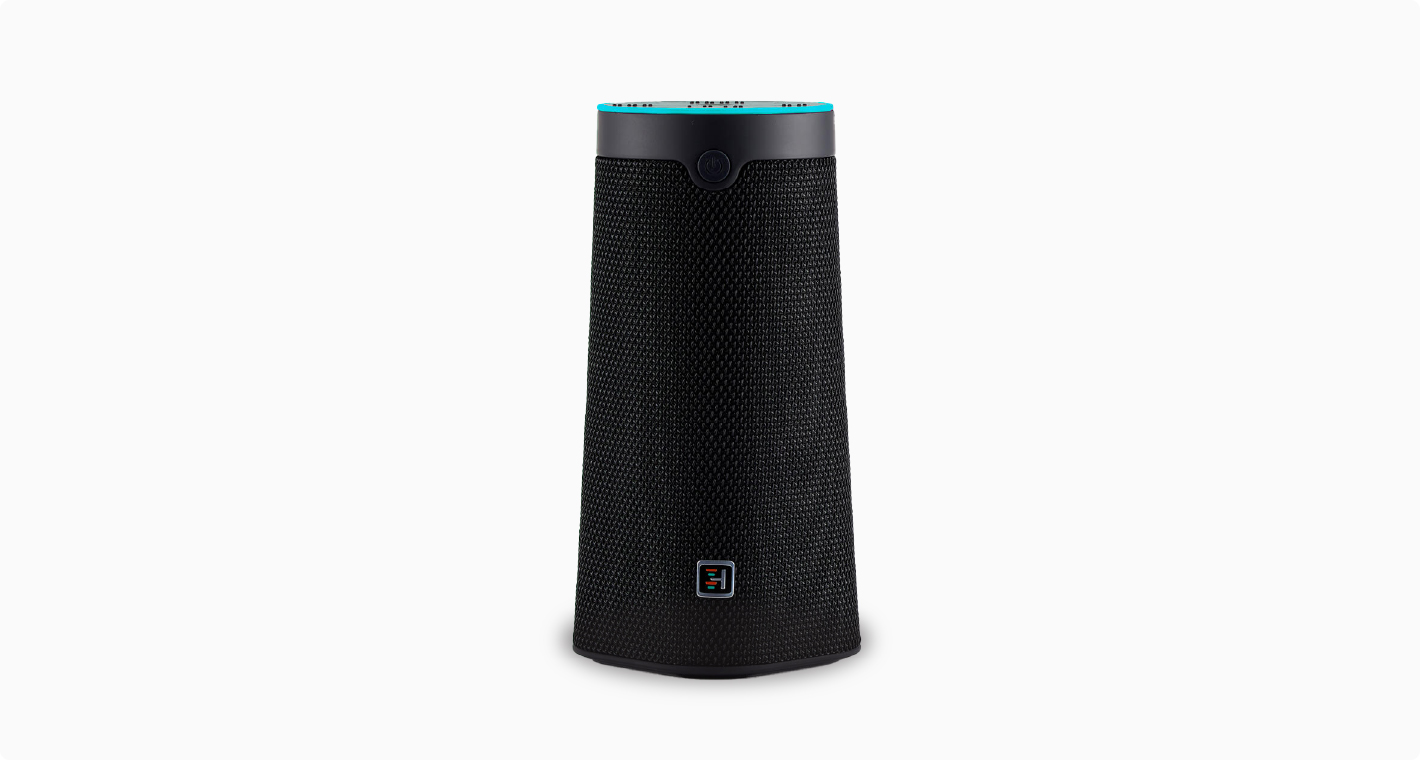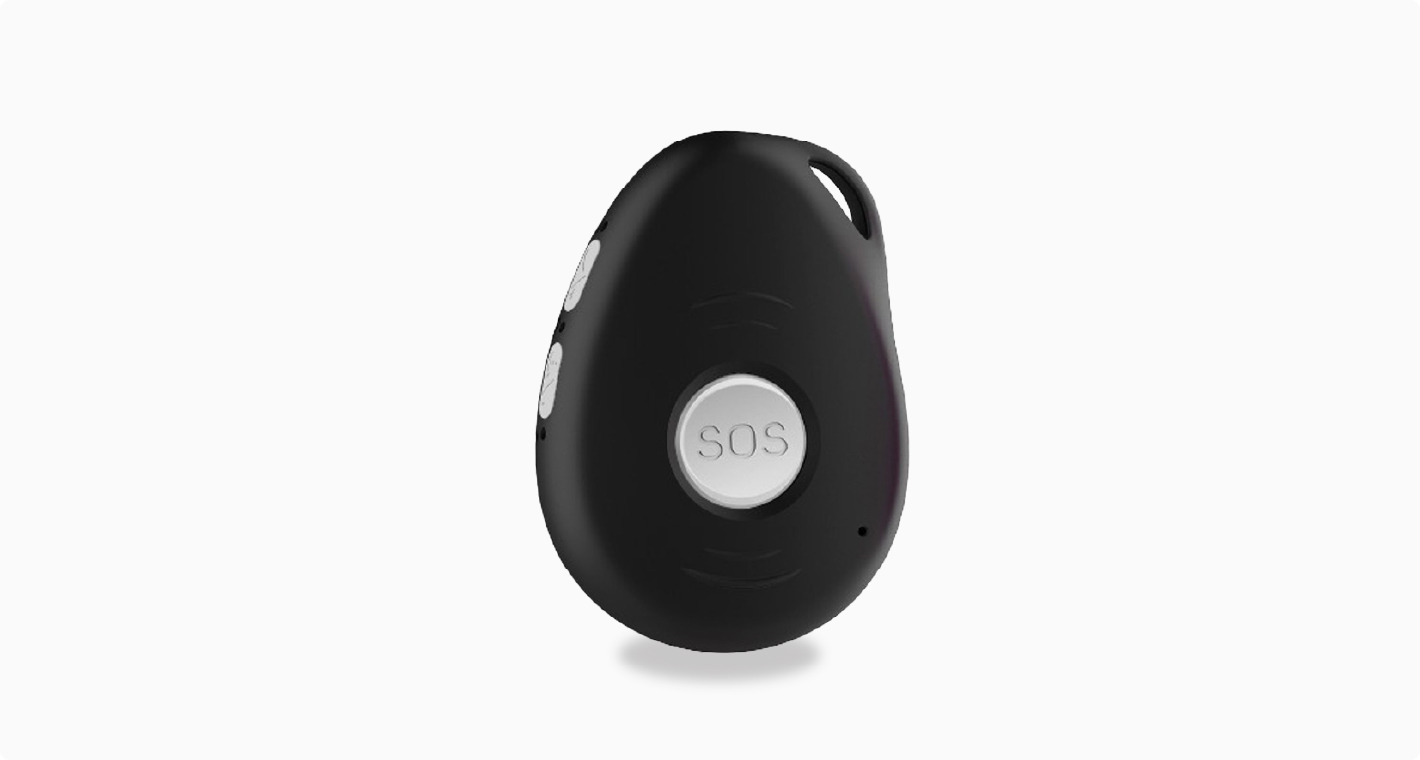A personal emergency response system (PERS), often called a medical alert system, can help seniors maintain a degree of independence without sacrificing the peace of mind of family and friends concerned for their health and well-being.
There are many medical alert system options available and before choosing the one best suited to your situation or that of a loved one, it is important to understand the factors that may contribute to your system choice.
Medical Alert Systems Comparison Chart
Before diving into our in-depth rankings, you can review this table for a general overview. Then, if you have preferences on pricing or brands, you can narrow down your options with the info we provided.
| System | Starting Monthly Fee | Range | Consumer Affairs Rating | Best For |
|---|---|---|---|---|
| Bay Alarm Medical SOS Home | $24.95/mo | 1000 ft | 4.6/5 | Overall performance and reliability |
| Medical Guardian Classic Guardian | $29.95/mo | 1,300 ft | 4.0/5 | Add-on customization |
| ADT Medical Alert On-The-Go | $39.99/mo | Portable | 4.5/5 | Portable system |
| MobileHelp Classic | $19.95/mo | 1,400 ft | 4.5/5 | Value at its price point |
| LifeFone At-Home Landline | $29.95/mo | 1,300 ft | 4.7/5 | Specialized features |
| Medical Care Alert HOME & AWAY ULTRA GPS Medical Alert System | $39.95/mo | Portable | 3.7/5 | Portable and at-home hybrid |
| Aloe Care Health Mobile Companion | $29.99/mo | Portable | 4.1/5 | Caregiver features |
| GetSafe Medical Alert System | $29.95/mo | 800 ft | N/A | Scalable options |
| Medical Alert Home System | $19.95/mo | 800 ft | 4.5/5 | Simplicity and ease of use |
| One Call Alert: Mobile Double | $44.95/mo | Portable | 4.8/5 | Two-for-one package |
| Lively Mobile Plus All-in-One Medical Alert | $24.99/mo | Portable | N/A | Contact options |
| Lifeline HomeSafe Standard | $29.95/mo | 500 ft | 4.2/5 | Customizable response plans |
| Amazon Alexa Together | $19.99/mo | N/A | 3.1/5 | For Amazon account holders |
| HandsFree Health WellBe Smart Speaker | $39.95/mo* | N/A | N/A | Health queries and database access |
| Lifestation Sidekick | $37.95/mo | Portable | 4.4/5 | Proprietary response algorithm |
| *$39.95 with a watch or pendant | ||||
Best Medical Alert Systems for Seniors
You’ll find our rankings for the top 15 medical alert systems for seniors below. With each entry, we’ll give a product overview, break down price plans, and highlight the main features.
1. Bay Alarm Medical: SOS Home
The SOS Home alert system comes from a trusted, 70-year-old brand. Bay Alarm’s alert system delivers a wide range of features at a low cost. While it doesn’t offer specialized tools, this system covers all the bases. Bay Alarm has you covered no matter your or a loved one’s needs.
Their system comes packaged with a waterproof call button connecting you to a dispatcher. Additionally, their durable wall buttons come with five years of battery life. Customers can also rely on a landline or cellular connection. That said, cellular systems cost an extra five dollars a month.
| Price | Features |
|---|---|
| • $24.95/mo for a landline connection • $29.95/mo for a cellular plan • $39.95/mo for a cellular plan with fall detection | • No fees for false alarms • Customizable emergency contact list • Durable, waterproof, medical alert buttons |
2. Medical Guardian: Classic Guardian
Medical Guardian’s Classic Guardian offers users unbeatable flexibility. Customers can add features like walls or wearable buttons at purchase for more protection. Alternatively, they can thrive with out-of-the-box features.
Unlike other items on this list, The Classic Guardian requires a landline connection. But in the face of one downside, Medical Guardian piles on other benefits. Customers can enjoy peace of mind with 32 hours of backup battery power, access to the MyGuardian portal & mobile app, and careful monitoring.
| Price | Features |
|---|---|
| • $29.95/mo for standard plan • $39.95/mo for fall protection | • Can sync with a necklace or wristband • Access to the MyGuardian app for caregivers • Optional add-ons available |
3. ADT: Medical Alert On-The-Go
Although ADT offers home alert systems, their portable unit is the strongest. No matter the place, one button push will put you in contact with emergency care. In addition, medical Alert On-The-Go’s wireless communication and GPS tracking will get dispatchers to you ASAP.
Like the other top-ranking systems, ADT’s tool doesn’t rely on gimmicks. Instead, fast, reliable service earns it the bronze medal.
| Price | Features |
|---|---|
| • $39.99/mo for a standard plan • $49.99 for fall protection | • Portability • GPS tracking • Wireless two-way talk |
4. MobileHelp: Classic
The MobileHelp Classic includes an in-home unit and one waterproof medical alert button. Thanks to its easy installation and clear interface, its simplicity helps it stand out. While you won’t find any unique features, MobileHelp charges one of the lowest rates. For a good all-rounder at an unbeatable price, look no further.
| Price | Features |
|---|---|
| • $19.95/mo for the standard plan • $30.95/mo with a fall button | • Easy installation • MobileHelp Fall Button compatibility • 24/7 safety monitoring |
5. LifeFone: At Home
LifeFone’s At Home systems come in landline and cellular models. Buyers can also choose between a necklace or pendant for their help button. On top of the standard features, users can customize their emergency plans to send phone, email, and text notifications. Room temperature sensors also send an alarm if the temperature rises or drops too far.
While these specialized features aren’t for everyone, interested customers will have a hard time finding them elsewhere.
| Price | Features |
|---|---|
| • $29.95/mo for landline plans • $34.95/mo for cellular plans | • Customizable emergency plans • Room temperature sensor • Incoming call support |
6. Medical Care Alert: HOME & AWAY ULTRA GPS Medical Alert System
Need help deciding between a portable or home alert system? No need to worry; Medical Care Alert has you covered with their HOME & AWAY ULTRA GPS system. This all-in-one model can put you in contact with emergency services at any place or time. And from the charging cradle, it operates like a standard in-home system.
| Price | Features |
|---|---|
| • $39.95/mo for standard plan • Extra $10/mo for fall protection • Extra $5/mo for extended protection | • Responds to voice prompts • Caregiver notifications when the system enters or leaves the charging cradle • RemoteCare 24/7 app included with purchases |
7. Aloe Care Health: Mobile Companion
Aloe Care Health’s Mobile Companion works to help senior caregivers. With built-in fall and location detection, emergency services can lend a hand anywhere. The device also uses sight, sound, and vibration feedback to ensure customers can contact dispatchers.
The Aloe Care mobile app helps friends, family, and caregivers connect in one central location. While the equipment costs $100 on top of the monthly fee, these extra features can justify the price.
| Price | Features |
|---|---|
| • $100 for the equipment • $29.99/mo | • Aloe Care Health app support for caregivers • Multisensory feedback • Fast GPS detection |
8. GetSafe: Medical Alert System
GetSafe offers scalable plans based on the size of your home. Each plan charges $29.95 in monthly monitoring fees, but the upfront equipment fees range from $79 to $307. In exchange, you can get multiple standard or voice-activated wall buttons. In terms of room-by-room coverage, you can’t beat GetSafe.
| Price | Features |
|---|---|
| • $29.95/mo for health monitoring • $79 for equipment or starter plans • $193 for equipment on standard plans • $307 for equipment on select plans | • Multiple types of help buttons in each package • Scalable plans for your needs • Optional add-ons for mobile GPS tracking and fall detection |
9. Medical Alert: Home System
Medical Alert’s Home System is affordable, easy to use, and reliable. While Medical Alert offers a mobile option, their in-home setup edges it out. Medical Alert covers the fundamentals with cellular and landline setups, optional fall detection, and a waterproof button. Medical Alert is a solid choice if you want a no-frills alert system.
| Price | Features |
|---|---|
| • $19.95/mo for the standard plan • $29.95/mo with fall protection | • Outage protection with 30 hours of battery life • Easy setup and use • Access to the Medical Alert Connect mobile app |
10. One Call Alert: Mobile Double
One Call Alert’s Mobile Double package gives a high-value deal to users. The Mobile Double comes with two portable systems for the cost of one. These water-resistant all-in-one devices feature GPS tracking, 24/7 monitoring, and two-way communication. As a result, this deal is perfect for live-in partners on one plan.
| Price | Features |
|---|---|
| • $44.95/mo | • No landline or internet required • No upfront equipment costs • Risk-free 30-day trial period |
11. Lively: Mobile Plus All-in-One Medical Alert
Lively’s Mobile Plus device offers fast call response times from a range of agents. While this portable device has standard features, the premium package offers a few unique ones. For example, customers can contact an on-call nurse or care advocate during or after an emergency.
While Lively doesn’t offer the strongest portable device, these services go the extra mile for patients with specific needs.
| Price | Features |
|---|---|
| • $24.99/mo for the basic package • $34.99/mo for the premium package • $9.99/mo for added fall protection | • 80 hours of battery life on standby • On-call nurse and care advocate for premium package holders •Fall protection available for basic and premium plans |
12. Lifeline: HomeSafe Standard
The HomeSafe Standard gives you exactly what the title suggests. This at-home system puts you in contact with emergency services at the press of a button. Unlike some systems, users can customize their response plans to defer to friends or family members for help.
Despite leaning on standard features, Lifeline’s product comes at a higher price than many competitors.
| Price | Features |
|---|---|
| • $29.95/mo for landline plan • $43.95/mo for cellular plan • $15/mo for auto alert fall detection | • Self-installation or technician installation options • Customizable response plans • 24/7 multilingual support |
13. Amazon: Alexa Together
Alexa Together repurposes your Amazon Echo as a remote caregiving tool. Instead of focusing on emergencies, your Amazon Echo can share reminders and offer remote assistance, as well. Of course, it comes packaged with 24/7 emergency response capabilities. For fall detection, you need to buy a third-party device.
While Alexa Together offers well-rounded services, it’s not for everyone. Users with severe medical concerns will prefer a dedicated service. On the other hand, Echo owners looking for extra security may benefit from it.
| Price | Features |
|---|---|
| • $19.99/mo | • Customizable alert services and reminders • Remote assistance by sharing reminders, shopping lists, and more • Activity feeds summarizing Alexa's activities |
14. HandsFree Health: WellBe Smart Speaker
The WellBe Smart Speaker takes the concept of Alexa Together and pushes it in a health-focused direction. This easy-to-set-up speaker allows you to ask questions, request assistance, or give caregivers health updates. So whether you need emergency help or ongoing care, HandsFree Health has you covered.
Users also get access to the WellBe Virtual Assistant app. Its easy-to-use interface allows you to set medical alarms and reminders. However, customers have to spend $189 on the speaker. Additionally, connecting it to medical alert watches or pendants incurs a monthly fee.
| Price | Features |
|---|---|
| • $189 on the speaker • $29.95/mo with a standard alert watch or pendant • $39.95/mo with a fall detection pendant | • Privacy features and HIPAA compliant data storage • Medication and appointment reminders • Database of health information to answer user questions |
15. Lifestation: Sidekick
Lifestation’s Sidekick provides fast emergency responses from any location. Lifestation’s proprietary algorithm helps emergency respondents track you quickly after an incident. Its powerful speaker and microphone also ensure crisp communication until help arrives. Despite all this, Lifestation charges higher prices than competitors.
| Price | Features |
|---|---|
| • $37.95/mo for standard plans • $44.95/mo for select protection plans • $51.95/mo for supreme protection and fall detection plans | • Battery life up to five days • Test emergency call button to ensure the device works • Enhanced location services with a proprietary algorithm |
Methodology
Our rankings took several factors into account. While reputation and brand identity played a role, we favored measurable factors over intangible ones. To strike the right balance between business practices and each product’s merits, we considered:
- Pricing
- Consumer Affairs scores
- Customer ratings
- Reviews from third-party experts
- Key features
How To Choose: Important Functions
When choosing a medical alert system, you want a choice that offers a full range of standard functions. Investing in a system with features that provide care and alleviate safety concerns is vital. Consider how you expect your system of choice to function in terms of the following points:
- Signal for assistance: Can the system call for help? Most medical alert systems focus on emergency response connectivity. For example, wearable medical alert devices may feature a button that alerts emergency services after an injury.
- Fall detection: Can the system detect when a fall has taken place? As perhaps the most common medical emergency for seniors, fall detection is crucial when you can’t prevent falls.
- Medical, fitness, and activity monitoring: Does the system feature automated medical reminders or monitor vital signs? Does it monitor activity and movement?
- Daily check-in function: Can you enable a daily check-in? Does the check-in occur through a phone call or the medical alert system itself?
- Home security monitoring: Does the system connect to or provide home security monitoring for things like smoke, fire, and carbon monoxide?
- Family connectivity: Is there a function in the system that alerts the family of a medical emergency?
- System responsiveness: Is the response time of the system fast? Are the response center personnel knowledgeable and able to communicate effectively?
- Call routing: Does the function exist to appropriately route emergent and nonemergent calls to the proper emergency response professionals (fire, police, medical)?
- Customer service: Is there 24/7 live customer service to assist as needed?
How To Choose: Equipment Considerations
Whether the system includes a wearable element, activity beacons around the home, or a combination thereof, you should consider the equipment involved in the installation and function of your system. Keep the following in mind when reviewing your alert system equipment:
- Wearable devices: Is there a wearable element for the customer? Is it easy to find and comfortable for anyone wearing it?
- Waterproof: Is the wearable device waterproof? This is important, as slips and falls in wet showers or on wet floors pose a risk.
- Device range: Choosing a device with a signal range that meets your needs is essential. Find out how far a wearer can travel from the base unit and maintain a strong signal. Can it reach out to the garage, driveway, and mailbox?
- Quality: Is the device durable? Can it handle damage, and is the technology used in the device up-to-date?
- Battery life: How long is the battery life of the device? Is it fast charging? Is there an alert when the battery runs low?
- Mobility: Is the system easy to uninstall and reinstall if the need to move arises?
- Lockbox: Does the system include a secure lockbox emergency responders can access should the wearer stay unresponsive or incapacitated when help arrives?
Additional Cost Factors
You want a clear understanding of any upfront or ongoing costs from installing, using, and maintaining a personal emergency response system. Remember to ask for an outline of items included and itemized billing statements to ensure all costs are accurate and transparent. When assessing costs, consider:
- Equipment purchase or leasing fees: The more equipment needed to run the system, the higher the cost of initial purchases. Some companies may offer equipment leasing options.
- Installation fees: Find out how much it will cost to have the system installed by a professional. Do you have the option of installing the system on your own to lower the cost?
- Monthly operating fees: How much will it cost to maintain the system after installing the equipment? Monthly fees may range from $25 to $50. Review all contracts to learn the policies on temporarily disabling the system.
- Discounts: Ask for information on discounted rates for equipment, installation, and system maintenance. Veterans, multiple users in the home, and members of specific organizations may receive discounts.
- Insurance: Private insurance and Medicare benefits generally won’t cover a medical alert system. Medicaid may cover at least part of the cost. Like final expense insurance for seniors, you can look into your insurance company to see if there are discounts or referrals available.
- Tax deductions: Ask your tax professional about any tax deductions on medically necessary expenses.
Frequently Asked Questions
- Require daily living assistance
- Have limited mobility
- Take four or more types of medication
- Have a history of injuries from falls
- Suffer from preexisitng conditions
- Live alone or spend long stretches of the day alone
- Have recently been hospitalized
- Wants to protect their health through retirement
- Customers press an emergency call button, make a voice-activated call for help, or trigger fall detection devices.
- Medical alert systems send a customer’s information and location to emergency operators.
- Operators contact emergency services, personal contacts, or neighbors to lend help.
- Operators stay on the line until help arrives.
- Comfort
- Aesthetics
- Ease-of-use
- Personal convenience
- Their personal medical needs
Find Local Availability And System Support
When buying from a national brand, always ensure local support for your medical alert system. Ultimately, local technology and equipment support can make all the difference. Taking this extra step when choosing a medical alert system for seniors pays for itself in peace of mind.
If you’re in the market for a medical alert system, you may also want to look into final expense insurance. Similar to this breakdown, we have a list of the best burial insurance companies. Additionally, we can offer a quote based on your preferences. No matter your final expense needs, we can highlight the right provider and price for you.



